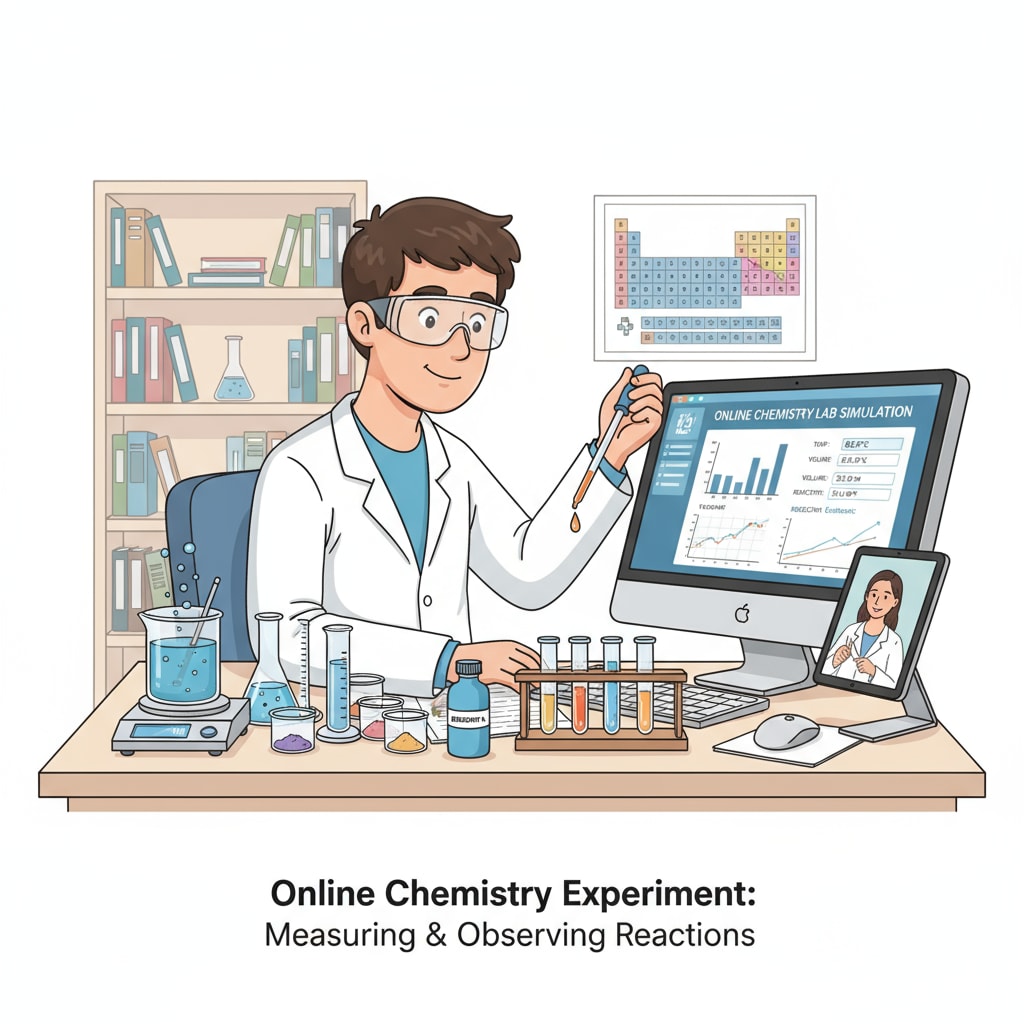High school students often find themselves at a crossroads when considering online learning options for physics and chemistry, especially with an eye on potential careers in the health field. The choice between these two scientific disciplines can be a daunting one, as it not only impacts immediate academic performance but also has long-term implications for future career paths.

Personal Interests: The Foundation of Decision Making
Personal interests play a crucial role in deciding between online physics and chemistry courses. If a student is fascinated by the fundamental laws governing the universe, such as the principles of motion and energy, then physics might be the ideal choice. Physics delves into the study of matter, energy, space, and time, seeking to understand the most basic and fundamental aspects of the natural world. For example, concepts like Newton’s laws of motion or Einstein’s theory of relativity can spark a passion for those interested in understanding how the physical world operates. On the other hand, students with a love for the study of substances, their properties, reactions, and transformations may be more inclined towards chemistry. Chemistry is all about the composition, structure, properties, and reactions of matter. The colorful world of chemical reactions, from the combustion of fuels to the synthesis of new materials, can be highly appealing to those with a curious mind in this area. Physics on Wikipedia

Academic Performance: A Key Indicator
Academic performance in previous science courses is another significant factor. If a student has consistently excelled in mathematics and has a good understanding of abstract concepts, physics might be a better fit. Physics often requires strong mathematical skills, as it uses equations and formulas to describe and predict physical phenomena. Success in courses like algebra, trigonometry, and calculus can be a strong indicator of potential success in physics. Conversely, students who have shown proficiency in laboratory work, data collection, and analysis, along with a good memory for chemical facts and reactions, may find chemistry more suitable. Chemistry involves hands-on experiments, which require careful observation and accurate recording of data. A good track record in these areas can suggest that a student will thrive in an online chemistry course. Chemistry on Britannica
When making this important decision, students should also consider the long-term implications for their career goals, especially in the health field. Some health professions may require a stronger foundation in physics, while others rely more on chemistry. For example, radiology and medical physics-related careers demand a solid understanding of physics principles, such as radiation and imaging technologies. On the other hand, pharmacy, biochemistry, and many areas of medical research rely heavily on chemical knowledge. By aligning their online learning choice with their future career aspirations, students can better prepare themselves for success in the health field.
Readability guidance: In this article, we have explored the various factors that high school students need to consider when choosing between online physics and chemistry learning, especially in relation to the health field. By weighing personal interests, academic performance, and career goals, students can make a more informed decision that will benefit their academic journey and future professional development.


